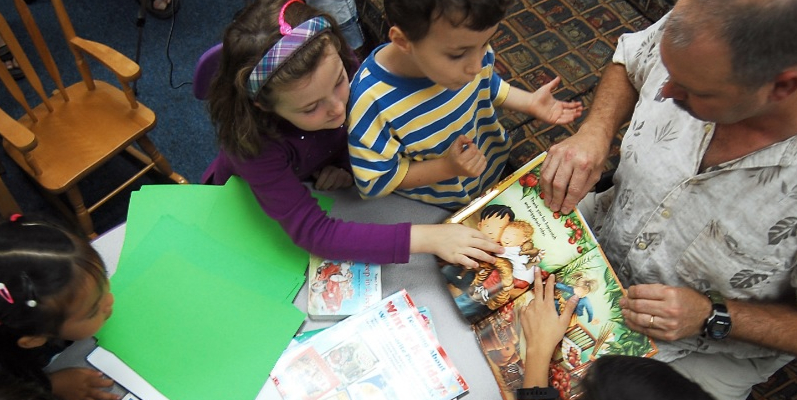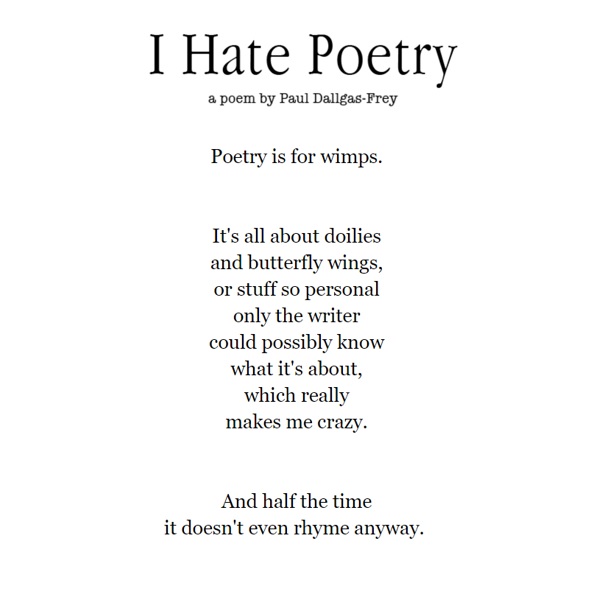 For the record, I don’t hate poetry. I rather like it.
For the record, I don’t hate poetry. I rather like it.
It can be tricky, however, to pass on a love of poetry to young students. I know this because I remember sitting through interminable, painful lessons on poetry as a student myself.
Last month I spent several weeks co-teaching with a first year teacher and based on the response from her students, I can speak to an ideal method of instruction.
How To Avoid Creating Disdain for Poetry
The process of inquiry is the absolute best preventive for poetry scorn. In their book, Genre Study: Teaching with Fiction and Nonfiction Books, Fountas and Pinnell describe the process in an inquiry unit. Simple, yet profound–
- Collect
- Immerse
- Study
- Define
- Teach
- Read and Revise
Large stacks of great books on poetry were collected. We wanted to be particularly mindful of the reading needs of the students. We found great examples of various types and forms of poetry.
We started by reading a poem about wiggling into the warmth of a sleeping bag and projecting this image on the Smart Board so that students could concentrate on the language of the poem and the image while listening.
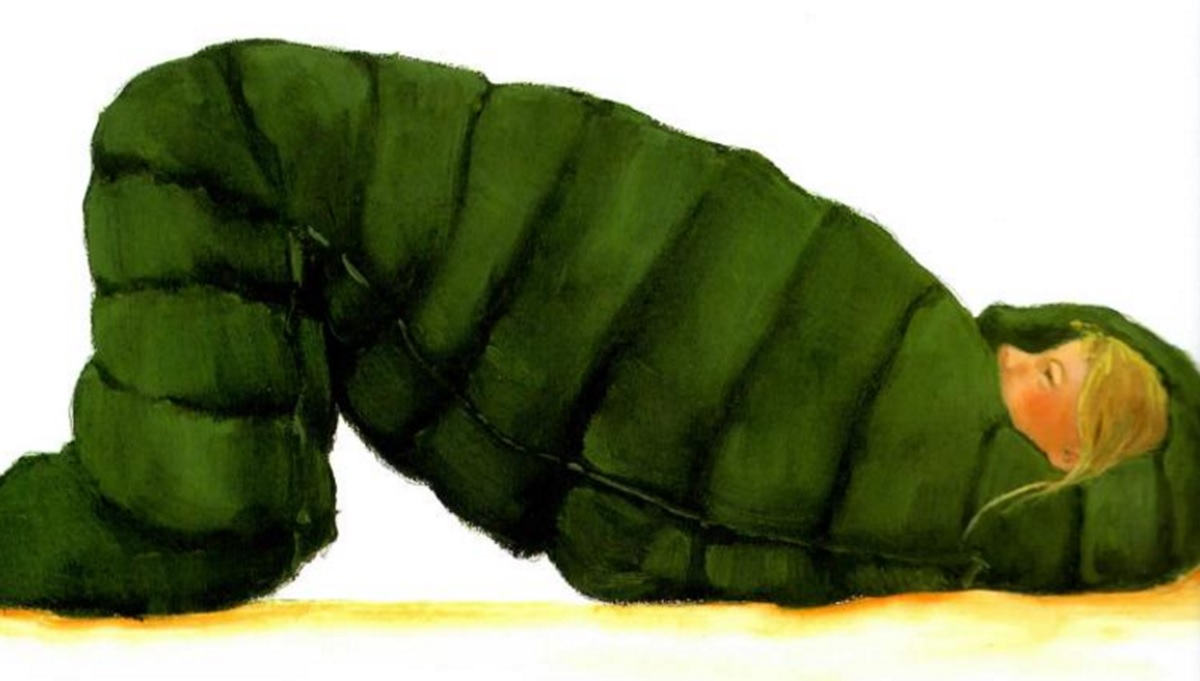 .
.
“We’re starting a new unit of study on a genre we’ve not yet read in our class this year. It’s up to you to discover what kinds of things you notice about this genre. We’ll come back to our class meeting area in about 25 minutes and discuss what you’ve found.” And off they went in pairs or on their own to read and immerse themselves in great verse.
Our scholars came back with so many “noticings” about poetry. A large chart was created and as a class we paid particular attention to their study of the characteristics that were always evident versus those that were only occasionally evident.
All this work on the students’ part led to the development of a class description of the genre of poetry.
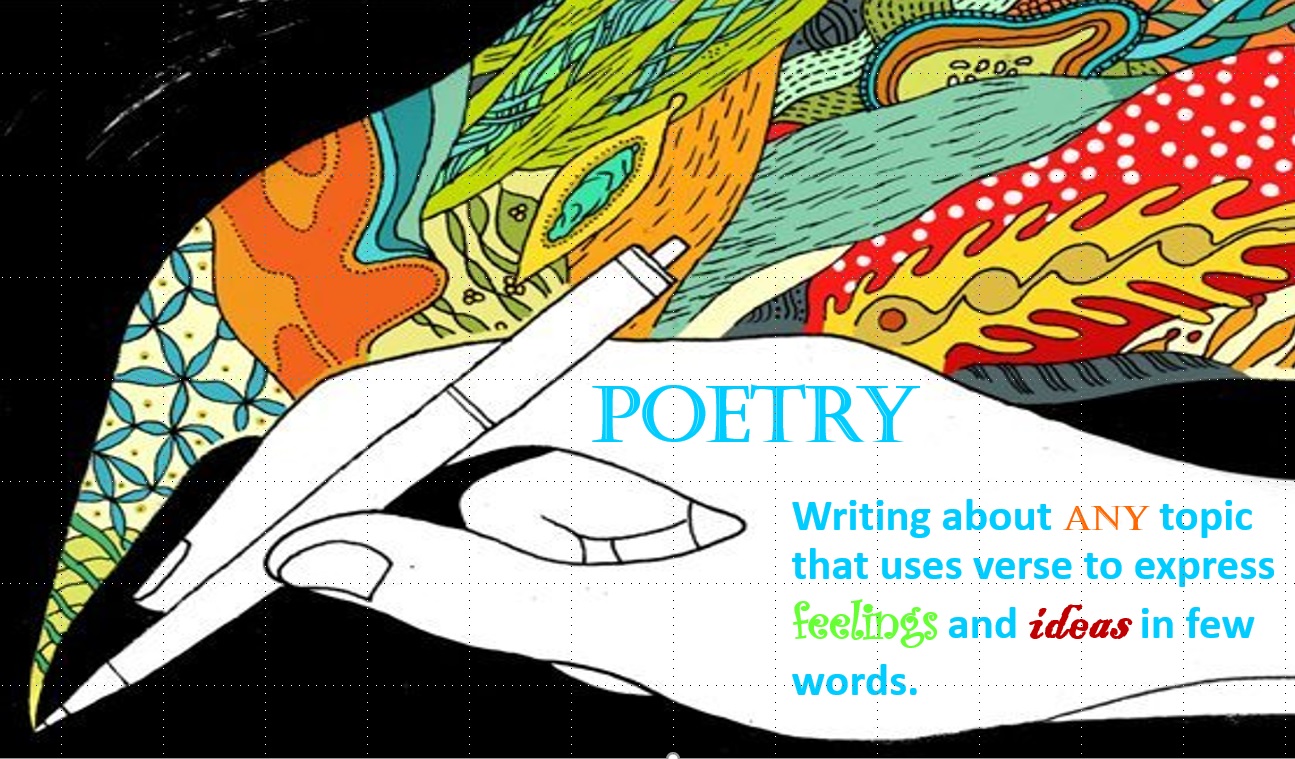
Days of poetry reading, listening, and repeated readings of favorites ensued. The teacher and I planned minilessons teaching the elements of poetry by sharing examples from powerful mentor texts. One day as we closed out the lesson a student said, “I didn’t even know that I liked poetry.”
Over the course of the unit study students continued to read poetry and we added to our list of characteristics as new discoveries were made.
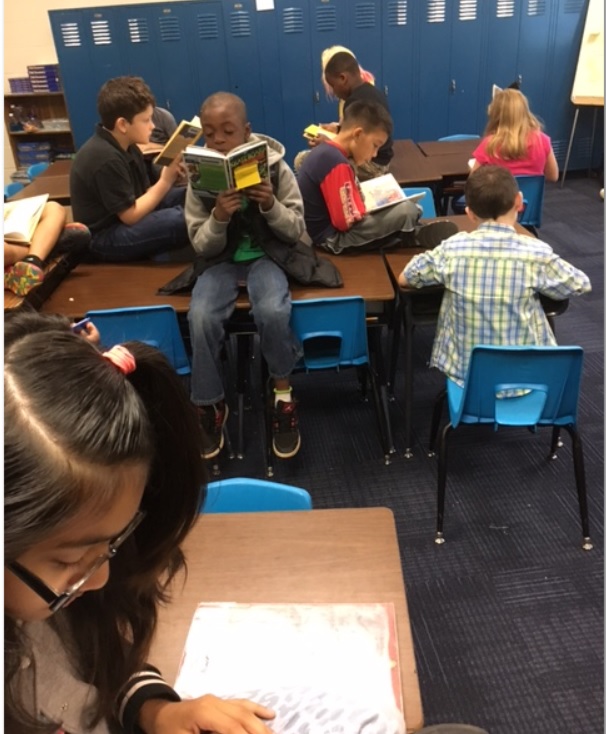
I prepared myself for at least some weeping and gnashing of teeth as we went further into the study of poetry, but it never happened.
Quite the opposite—I was gathering books for a completely different genre study in the school library when the librarian approached me, “What’s going on in Mrs. Bauer’s class? Over a third of her students came in today asking where the poetry section was.”
When we asked students for feedback at the close of the unit, one student’s response was priceless, “I think our poetry study was so much fun because of all the great poems we read, but mostly because we got to do almost all of the work. You and Mrs. Bauer hardly did anything at all.”
Precisely.








